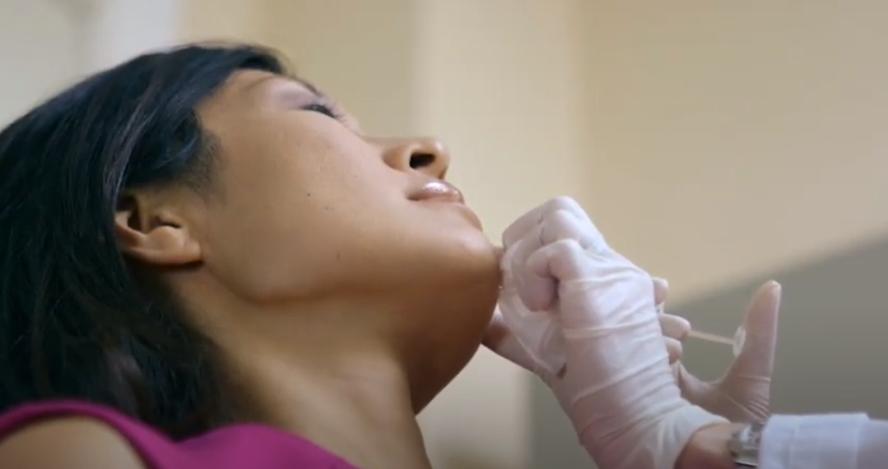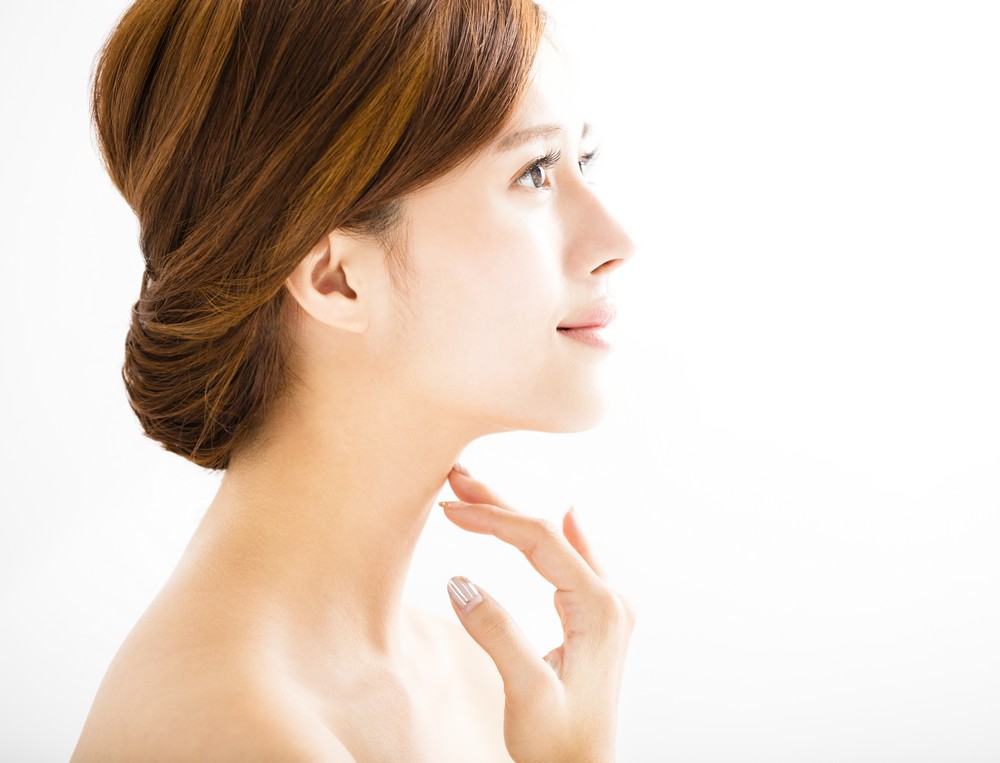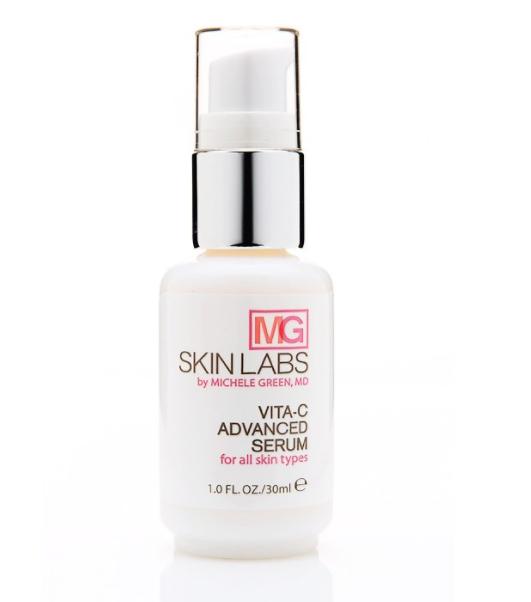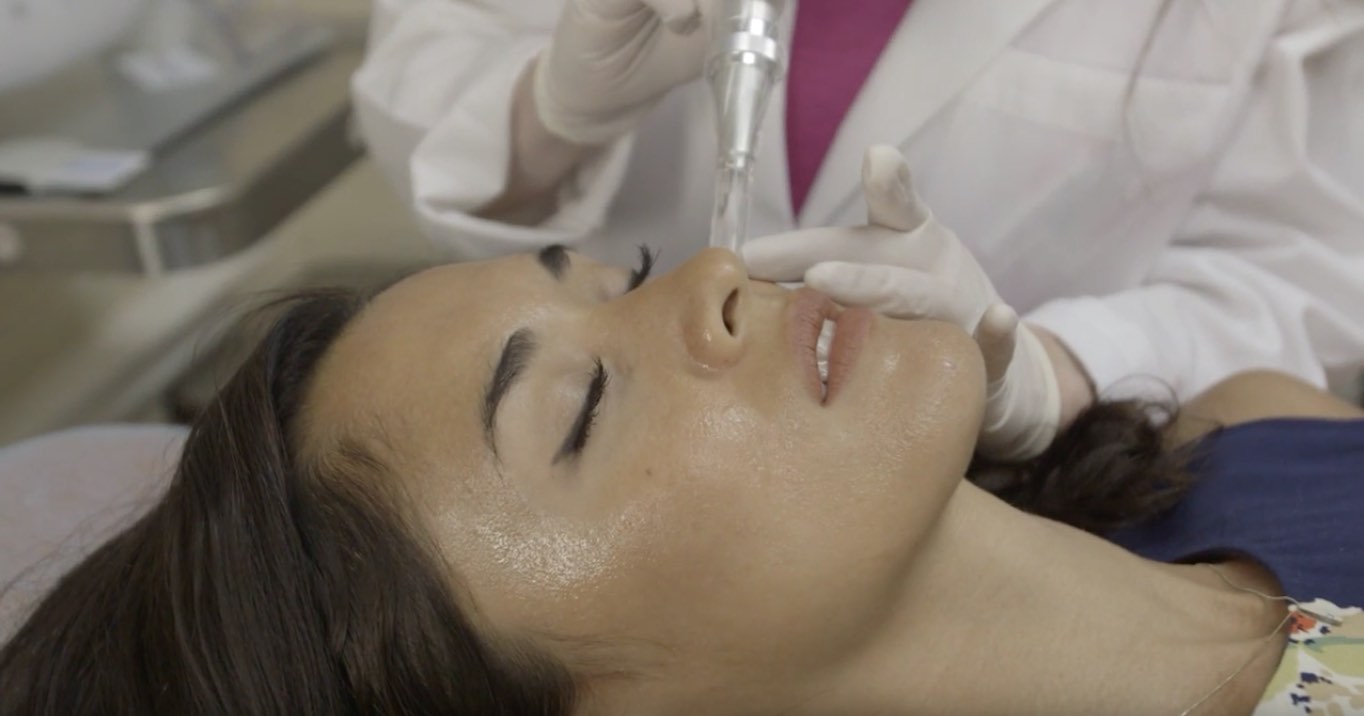Asian Skin Lightening
There are many potential reasons why patients may seek out skin-lightening creams. As we age, sun spots, melasma, and other forms of hyperpigmentation can develop on the skin, leading to discoloration and an overall uneven skin tone. Skin lightening creams prescribed by a board-certified dermatologist can safely and effectively remove these dark spots on the skin when used as directed. However, some patients may turn to over-the-counter (OTC) creams, soaps, or powders, which are less easily regulated by the American Food and Drug Administration (FDA) and can be unsafe for use, posing potential risks to your skin and health. Furthermore, some patients may turn to skin bleaching, a practice in which skin whitening cream is applied to a large surface area of the skin to lighten the complexion. The practice stems from colorism, which is the discriminatory belief that a lighter complexion and white skin are more desirable. Colorism has fueled the global demand for skin whitening products, estimated to be an $8.6 billion market in 2020 and predicted to be worth 12.3 billion by 2027. In addition to the harmful messaging surrounding skin-bleaching products, these treatments can have serious side effects, resulting in permanent or long-lasting health problems. The best first step when considering any form of skin lightening is to consult an expert board-certified dermatologist, such as Dr. Michele Green.
The use of bleaching creams dates back to the 16th century and remains popular in many Asian countries, including China, India, South Korea, Japan, Thailand, and the Philippines. As many as 40% of the population in Asia practices some form of skin-whitening. Colorism and a history of complex social, economic, and cultural views surrounding lighter and darker skin cause many patients to seek out skin-lightening creams despite the health risks. Some ingredients that are commonly found in unregulated skin bleaching creams can be dangerous, including corticosteroids, inorganic mercury, glutathione, and hydroquinone. That is why it is essential to seek out trusted skincare brands and only apply skin-lightening creams as directed by a dermatologist, such as Dr. Green.
Experienced board-certified dermatologist Dr. Michele Green has been expertly treating patients in her Upper East Side New York City dermatology office for more than 25 years. Adept at many cosmetic and medical procedures, Dr. Green has a wide range of treatment options and cosmetic products available at her office, including skin care products from her proprietary MGSKINLABs, laser treatments, Botox, dermal fillers, chemical peels, and more. Dr. Green is very experienced in treating patients of all skin types and chooses the products and procedures that will be safest for each patient’s skin color. Well known for high patient satisfaction, Dr. Green has been voted one of the best healthcare providers in New York City by publications such as Castle Connolly, Super Doctors, and New York Magazine.
What is Asian skin whitening?
Skin bleaching or skin lightening is the process by which dark spots or areas of pigmentation on the skin are lightened to achieve a more even skin tone or lighter skin. The practice works by applying a lotion, cream, or soap that contains specific chemicals to inhibit the production of melanin, which is the pigment that gives the skin its color, in the treatment area. When prescribed by a dermatologist skin, skin-lightening products can be a safe and effective way to address skin conditions such as age spots, acne scars, hyperpigmentation, and melasma. However, the chemicals in these products are not safe for long-term use or when used in high concentrations to achieve the overall appearance of light skin. As skin-lightening products are an expanding global industry, it can be difficult for the FDA to regulate all skin-bleaching cosmetic products that are available online or over the counter, making the regulation of these products a growing public health concern. That is why it is imperative to consult an expert dermatologist before using skin-bleaching products.
Why do Koreans / Japanese / Asians lighten their skin?
The history of skin lightening in Asian countries is complex and nuanced, and records of skin bleaching date back to as early as the 16th century. The practice has long been rooted in socio-economic and political relations rather than vanity—people with lighter skin did not need to work outdoors for a living, meaning they were afforded a life of nobility, wealth, and leisure. Many historians believe skin-bleaching practices were partly influenced by the implications of prosperity associated with light skin. European and English colonizers from the West also imposed light-skin beauty standards on Asian and African cultures. These beauty standards persist today, with Korean K-pop and Indian Bollywood stars participating in skin-lightening product marketing, further perpetuating the idea that lighter skin is a status symbol. Just as the practice of skin bleaching is complex, Asian people are not a monolith, meaning that individuals in Asia have a wide range of reasons for lightening their skin.

Is Asian skin melanin-rich?
Asian skin is more susceptible to hyperpigmentation than Caucasian skin due to a higher concentration of melanin in the skin. This can mean a higher incidence of dark spots caused by sun damage and a higher risk of post-inflammatory hyperpigmentation due to improper laser use on Asian skin. The most crucial skincare step for preventing hyperpigmentation in Asian skin is to apply a broad-spectrum sunscreen of SPF 30 or above at the start of every day and reapply every two hours or immediately after heavy sweating or contact with water. Using sunscreen can help prevent hyperpigmentation, such as sun spots and a flair-up of melasma. It is also essential to select a healthcare provider who is familiar with treating Asian skin, such as Dr. Green, for treatment options that are safe and effective for your skin type.
Can you lighten your skin?
Skin lightening creams, lotions, soaps, and powders contain chemicals that inhibit the production of the pigment melanin that occurs in cells known as melanocytes. The various ingredients in skin-lightening products reduce the appearance of dark spots in different ways. Products containing hydroquinone reduce the number of melanocytes in the treatment area, reducing the concentration of melanin and leading to lighter skin. Some products contain vitamin C, an antioxidant that reduces melanin production in the melanocytes. Products containing glycolic acid or retinoids work by exfoliating the skin, which leads to skin cell turnover, revealing lighter skin underneath. While skin-lightening products do work to brighten the skin and achieve a more even skin tone, patients should always consult with a dermatologist before beginning skin bleaching treatment and should follow all healthcare provider instructions.
What do Asians use to lighten their skin?
A common question about skin lightening is, “How do Asians lighten their skin?” Historically, many ingredients found in skin-bleaching creams are dangerous, including inorganic mercury, corticosteroids, hydroquinone, and glutathione. While skin-bleaching products have become illegal in some countries, buying unregulated online products is easy. That is why it is critical to have skin-lightening products prescribed by a dermatologist or seek advice on products that will be safe for your skin first. Hydroquinone products are not available over-the-counter but can be effective when used as directed by a dermatologist. Products containing kojic acid, azelaic acid, arbutin, and tretinoin can also be effective for anti-aging and lightening dark spots.
Many individuals with Asian skin also turn to laser treatments like the Helios laser to improve skin pigmentation. The Helios laser is a Q-switched Nd: YAG laser that was FDA-approved in 2022 for skin toning, brightening, and tattoo removal. The laser uses multiple wavelengths and handpieces to treat the skin at each level to brighten skin pigmentation and even skin tone. Using Pico and Nanotechnologies, the Helios 785 laser can decrease melanin and pigmented lesions in sensitive Asian skin for clear, radiant, glowing skin. This laser is associated with zero downtime or side effects and typically requires multiple treatment sessions for optimal results.

What is Korean skincare?
Around the world, more and more attention is being paid to the Korean skincare routine and K-beauty products to provide patients with smooth, clear, bright, glowy skin. The Korean skincare regimen involves a 10-step process of cleaning the skin of debris such as makeup, sunscreen, excess oils, and dead skin cells, infusing the skin with antioxidants, vitamin C serums, and hyaluronic acid, treating skincare concerns such as acne blemishes, fine lines, and dark spots, applying a face mask, moisturizing, and repeated application of sunscreen throughout the day. Many Korean beauty skincare products are available online and can be used in this skincare process. However, the 10-step regimen does not require patients to use beauty products directly from South Korea.
The ten steps of the routine are as follows:
- Oil-based cleaner, which is used to remove makeup, sunscreen, and excess oil.
- Use a water-based cleanser to remove dirt, sweat, and other debris. The two-step cleanser process helps thoroughly clean the skin of oil—and water-based debris.
- Exfoliation should be performed once or twice weekly to remove dead skin cells and promote skin cell turnover.
- Toner to help repair the skin barrier and prepare the pores to absorb treatments
- Essence, serums, and boosters, such as Vitamin C serum that hydrate the skin and contain antioxidants.
- Treatment is the step in which acne treatment occurs and involves applying topical treatments for skin conditions, improving acne breakouts, the appearance of acne scars, and hyperpigmentation, such as rosacea.
- Sheet Masks are a signature part of the Korean skincare routine. Infused with concentrated essence, sheet masks are applied to the face to hydrate and moisturize the skin.
- Eye Creams are applied to the delicate under-eye area to prevent signs of natural aging, like fine lines and wrinkles.
- Moisturizers can be applied in many forms, including creams, gels, and masks, and work to seal in moisture for hydrated skin.
- Sunscreen is the most crucial step in the Korean skincare routine. Proper sun protection is necessary to prevent damage to the skin, such as hyperpigmentation and sun spots. The sun’s UV rays are also a primary cause of premature aging and can dry out the skin, exacerbating the appearance of fine lines and wrinkles.
What is the best moisturizer for glowing skin?
To seal in moisture and keep the skin smooth and hydrated, moisturize the skin’s surface every morning and evening as the second to last step of the 10-step process. Moisturizers containing hydrating ingredients such as hyaluronic acid, green tea extra, Centella Asiatica, snail mucin, and bamboo help to keep the keep from drying out overnight and throughout the day, which helps to smooth the skin and prevent the development of wrinkles. There are many different forms of moisturizers, including creams, gels, and serums, and depending on your skin type and local environment, the best form of moisturizer can change. For advice on what kind of moisturizer to choose, you can consult with Dr. Green.
How to clear Asian skin
Many treatment options are available to address acne breakouts for Asian skin, including topical creams, chemical peels, and antibiotics. Topical creams containing ingredients like retinol, benzoyl peroxide, and niacinamide are highly effective in controlling sebum production on the skin, which helps unclog the pores, reduce uneven skin tone, and clear the skin. Chemical peels exfoliate the skin and promote skin cell turnover, clearing the skin of excess oil and debris that may clog the pores and lead to an acne breakout. Antibiotics kill bacteria that may become trapped in the pores and provide an anti-inflammatory effect. When you consult with Dr. Green, she will recommend the acne treatment that will work best for you.
What are the best skincare products for collagen production and skin brightening?
Patients dealing with skin pigmentation can also care for their skin at home with topical creams, serums, and lotions available at Dr. Green’s proprietary MGSKINLABs. To treat dark spots, Dr. Green recommends the application of her Vitamin C serum combined with the AM/PM serum. The Vita-C and AM/PM serum can be applied morning and night and offer robust protection against antioxidants and free radicals. Further, the serums increase the production of the structural protein collagen, improving skin tone and texture and reducing the appearance of fine lines. For more severe dark spots, Dr. Green might prescribe a skin-lightening cream containing hydroquinone, which can be prescribed in varying strengths to reduce the appearance of hyperpigmentation.
The most effective way to prevent the formation of dark spots in the first place is to practice strict sun protection. To do so, Dr. Green recommends applying sunscreen of at least SPF 30 at the beginning of the day as the last step in your morning skincare routine and reapplying every two hours or directly after you sweat heavily or swim. Be sure to seek broad-spectrum sunscreen to protect against UVA and UVB rays. For skin that is particularly sensitive to the sun, Dr. Green may recommend a combination of chemical sunscreen, which rubs in, and physical sunscreen containing such ingredients as zinc oxide and titanium oxide. Physical sunscreen sits on the skin’s surface, forming a physical layer of protection against the sun’s rays.

Does rice water whiten/lighten the skin?
Rice water is the starchy water that remains after cooking rice. It has been used for centuries in hair and skin care. Rice water contains vitamins, chemicals, and antioxidants that may have a skin-lightening effect, though the effectiveness of rice water on skin-lightening has yet to be thoroughly researched. Patients should note that high concentrations of rice water applied to the skin can lead to skin irritation, so patients should always consult a dermatologist before using any skin-lightening products.
What are the best Asian skin-lightening products?
When treating pigmentation on Asian skin, it is essential to seek out an expert dermatologist, such as Dr. Green, who is very familiar with treating all skin types and knows what treatment options will be safe and effective for your skin tone. Due to the higher production of melanin, Asian skin is more prone to post-inflammatory hyperpigmentation (PIH), when dark spots form on the skin’s surface following improper treatment, and hypopigmentation, when white spots form at the treatment area. With years of experience treating Asian skin, Dr. Green has the best treatments available at her Upper East Side dermatology office, including chemical peels, such as the Cosmelan Peel and Mesopeel, Microneedling, skin-lightening creams, and laser treatments. To begin the treatment process, Dr. Green will examine the treatment area to determine the treatment or series of treatments that will be right for you.

Are skin whitening products safe?
Skin whitening can be dangerous, especially if patients attempt to lighten their complexion across a wide surface area. The risk of developing severe and lasting side effects increases when patients use skin-bleaching products with high concentrations of harsh ingredients, such as hydroquinone, mercury, or corticosteroids. Skin whitening creams acquired online or over the counter (mainly when acquired outside the United States) pose an even greater risk as these products are only sometimes thoroughly tested or FDA-approved.
How do I get skincare products from Asia?
Many Chinese, Japanese, Korean, and Indian skincare products are available online. However, patients should be cautious when purchasing skincare products online, as some countries have very little regulation regarding skin-bleaching ingredients in creams and topical solutions. Before using any products acquired overseas, it is best to consult with an expert dermatologist, such as Dr. Green, who can prescribe topical solutions that will be safe and effective for brightening dark spots without the risk of severe side effects.
Why is skin lightening/whitening so popular in Asia?
Some people wonder, “What causes skin lightening in Asian culture?” Skin lightening/whitening may be done in Asian countries for many reasons, as skin bleaching has a long and complex history in Asia, Africa, and worldwide. Currently, skin bleaching is a multi-billion dollar industry, and marketing released by skincare corporations continues to perpetuate the colorist narrative that white skin is the most desirable. Many of these skincare brands assert that lightening the skin will improve social standing and economic prospects.
How can I get fair skin? How to get started with skin-brightening skincare today
Skin-lightening products may be used for a variety of reasons. Dark spots, such as age spots, melasma, and hyperpigmentation, may develop on the skin’s surface as we age. With many different skin-lightening products available over the counter and online, it can be challenging to know if what you are getting is safe and effective. That is why consulting with an expert, such as experienced, board-certified dermatologist Dr. Michele Green, is always essential. Dr. Green is an expert at creating unique, individualized treatment plans for each patient, ensuring the best care for all.
Dr. Michele Green is an internationally renowned board-certified dermatologist with over two and a half decades of experience providing her patients with the best non-invasive treatment options. Dr. Green takes a holistic approach and embraces a less-is-more philosophy, creating customized skincare routines and treatment plans that cater to her patient’s unique concerns and aesthetic goals. She is consistently identified as one of New York’s best dermatologists by Castle Connolly, New York Magazine, and Super Doctors for her dedication to her patients and expertise. Please call us at 212-535-3088 or email our New York City-based office today to schedule a consultation with Dr. Michele Green to determine how to achieve your ideal skin tone and texture.
 212-535-3088
212-535-3088